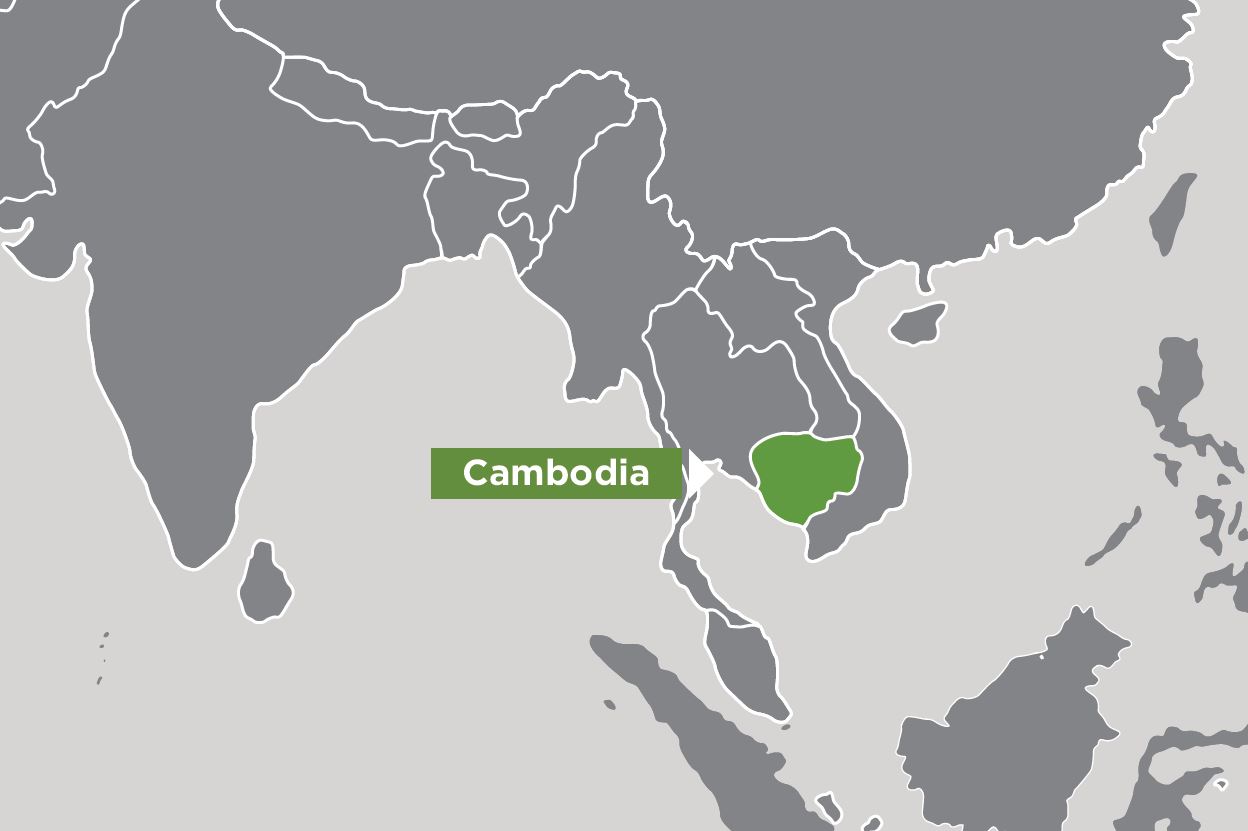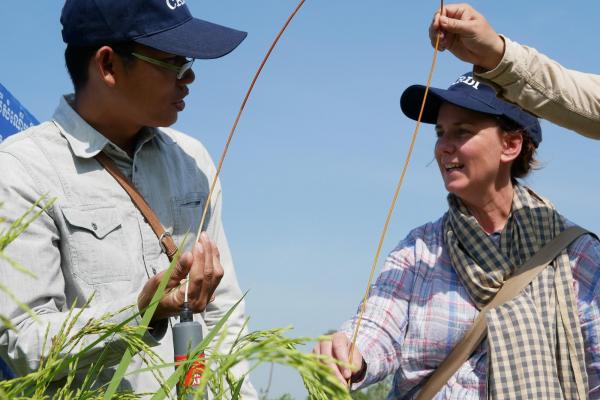Overview
This project aimed to improve soil management in selected upland farming systems of southwest and southeast Cambodia to increase yields and returns for diverse crop options.
In Cambodia, more than one-quarter of the country’s 3 million ha of uplands is used by smallholder farmers, providing food security and livelihoods. High agricultural prices have driven agricultural growth and farmland expansion in recent decades.
The Cambodian government recognises that expanding cultivation into unused or degraded land is not environmentally sustainable and has prioritised intensification, improved yields and diversification of cropping in areas where upland farming is under development.
In these rainfed uplands, crop yields and profits are vulnerable to low soil fertility, drought conditions and fluctuating markets. Cost-effective, site-specific soil and land management technologies must be developed to promote sustainable and profitable farm businesses in the uplands and minimise the risk of production losses and soil degradation.
Characterising and mapping constraints and determining land suitability is a critical enabling technology for improved field crop production in upland areas.
Outcomes
- Introduced new methodologies for soil and land suitability assessment and identification of main soil types and landscape patterns in representative upland regions.
- Conducted soil surveys of 2 districts which identified 4 new upland soils not described previously.
- Established a Cambodian Soils Practitioners Stakeholder Group enabling coordination and knowledge sharing relating to soil survey, soil information management, and method harmonisation.
- Developed a geographic framework of Cambodia for interpreting soil distribution in a landscape context.
- Developed Land Use and Land Cover Change Analysis (LULCC) framework for upland study areas, emphasising soil organic carbon under different land use.
- Developed and calibrated Rapid Soil Analysis techniques for CARDI laboratory, enhancing capacity for soil chemical and physical analysis.
- Identified the soil and land constraints to crop production and soil management technologies for the upland regions.
- Demonstrated crop response to P and K fertiliser additions compared to nil-fertiliser by farmer practice using satellite trials.
- Developed a diagnostic tool for land suitability analysis of soil types.
- Applied field trials and pot trials that identified the variability of response of crops and soils in the study region to fertiliser amendments for nutrient improvement or lime for managing low pH conditions.
- Introduced tools and information that enable stakeholders to identify the main soil types and their constraints on crop production.
- Engaged with farmer groups to better understand farmer knowledge and perspectives of soil and soil constraints to crop production in upland regions.
Summary of outcomes to date
2021–22
- The soil fertility and fertiliser use study was completed in Aoral and Dambae Districts. Over 100 farmers completed the survey and key informant interviews were conducted with fertiliser dealers and PDAFF extension staff. The survey highlighted farmers had limited understanding of soil fertility processes and the connection between crop symptoms and nutrient deficiencies. More than 70% of the smallholders considered that crop yields and soil fertility were declining in their upland fields; however, inorganic and organic fertiliser use was limited. Three main reasons were provided for not using fertiliser: a perceived lack of need to fertilise newly cleared upland soils; a lack of funds to purchase fertiliser; and concerns that fertiliser, particularly inorganic fertiliser, was bad for their soil, crops and health.
- Smallholder farmers in Kampong Speu Province participated in the third year of on-farm trials (2019 to 2021) that compared the effects N (recommended rate) plus P and K fertilizer rates (recommended rate or 2 x recommended rate) with farmer practices (no fertilizer) on peanut yield on various soil groups. Differences in soil type, rainfall and other limiting conditions meant there was considerable variability in yields among sites, seasons, and years. However, compared to farmer practice, additions of P and K fertiliser improved peanut yields by up to 47 % in the early wet season (EWS) and 25 % in the main wet season (MWS). Profits were estimated to increase by 60 % and 30 % respectively in the EWS and MWS. Whilst farmers voted maximum NPK rates as best for plant growth and yield, farmers indicated that when the economic analysis and other risk factors were considered, preference would be for the lower recommend rate. A key part of the study was farmers participation in field days to discuss specific issues of farmer concern.






